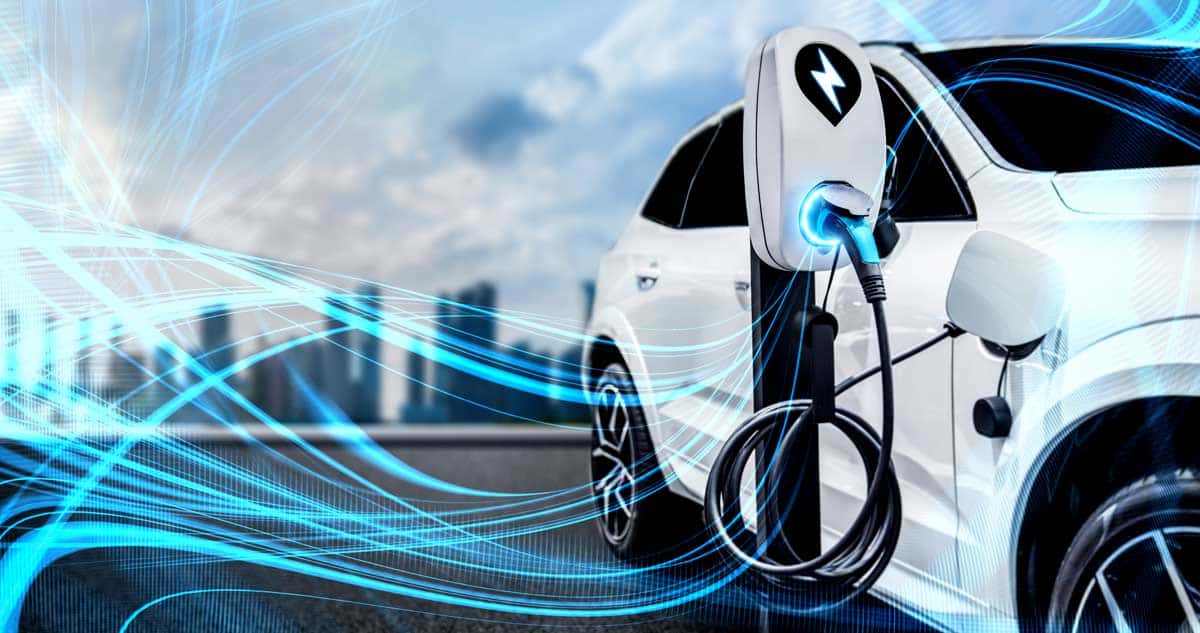China's Auto Industry: A Look At The Future Of Electric Vehicles

Table of Contents
The Rise of Domestic EV Manufacturers
The success of China's EV industry is significantly fueled by the rapid rise of domestic manufacturers. These companies are not just keeping pace but actively shaping the future of electric mobility.
Key Players and Their Strategies
Several key players are dominating the Chinese EV market, each with unique strategies for success.
- BYD: BYD (Build Your Dreams) has become a dominant force, integrating battery production with vehicle manufacturing, giving them a significant cost advantage. Their diverse model range caters to a wide spectrum of consumers. They are successfully expanding internationally as well.
- NIO: NIO focuses on a premium market segment, offering high-performance EVs with advanced features and a unique battery-swapping infrastructure, reducing charging times significantly.
- Xpeng: Xpeng is known for its advanced driver-assistance systems (ADAS) and is aggressively pushing the boundaries of autonomous driving technology.
- Li Auto: Li Auto differentiates itself by focusing on extended-range electric vehicles (EREVs) combining electric motors with gasoline engines for extended range and reduced range anxiety.
Government support, including substantial subsidies and tax breaks, has played a crucial role in the growth of these brands. This financial backing enables these companies to invest heavily in R&D, manufacturing, and marketing.
Technological Advancements
Chinese EV manufacturers are at the forefront of several technological advancements:
- Battery Technology: Significant improvements in battery density, energy capacity, and charging speeds are being driven by Chinese companies. This results in longer ranges and faster charging times for consumers.
- Charging Infrastructure: China is aggressively expanding its charging network, making it increasingly convenient to own and operate an EV. Fast charging stations are becoming commonplace in major cities and along major highways.
- Autonomous Driving: Chinese EV manufacturers are heavily investing in autonomous driving technology, with some models already offering advanced ADAS features. This technology is expected to become a key differentiator in the future.
Government Policies and Incentives
The Chinese government has played a pivotal role in fostering the growth of its EV industry through strategic policies and initiatives.
The Role of Government Support
Government policies have been instrumental in shaping the EV landscape:
- Subsidies and Tax Breaks: Generous subsidies and tax incentives have significantly reduced the purchase price of EVs, making them more accessible to consumers.
- Emission Regulations: Stricter emission regulations have compelled automakers to prioritize the development and production of electric vehicles.
- Quota System: Regulations mandating a certain percentage of EV sales for automakers have spurred significant investment in the sector.
These policies have stimulated both consumer demand and industry investment, creating a virtuous cycle of growth.
Infrastructure Development
The government's commitment to infrastructure development is equally crucial:
- Charging Station Expansion: Massive investments are being made in expanding the network of charging stations across the country, addressing "range anxiety"—a key barrier to EV adoption.
- Grid Modernization: Upgrades to the national power grid are crucial to handle the increasing demand for electricity from EVs.
- Smart Grid Technologies: Integration of smart grid technologies allows for more efficient management of energy distribution and helps optimize charging infrastructure.
Challenges and Opportunities
Despite its rapid growth, China's EV industry faces several challenges and also enjoys significant opportunities for expansion.
Challenges Facing the Industry
The path to continued dominance is not without hurdles:
- Battery Supply Chain: Securing a stable and reliable supply of battery materials is a major challenge. Dependence on imported raw materials presents vulnerability.
- Global Competition: Intense competition from established global automakers is intensifying as they enter the Chinese market with their own EVs.
- Charging Infrastructure Accessibility: While infrastructure is developing rapidly, ensuring access to charging facilities in rural and less developed areas remains a challenge.
- Environmental Concerns: The environmental impact of battery production and disposal needs careful consideration and sustainable solutions are needed to mitigate this issue.
Opportunities for Growth
The future holds tremendous potential for further growth:
- Export Markets: Chinese EV manufacturers are increasingly targeting international markets, capitalizing on their technological advancements and competitive pricing.
- Renewable Energy Integration: Integrating renewable energy sources into the charging infrastructure will further reduce the carbon footprint of electric mobility.
- Technological Innovation: Continuous innovation in areas such as solid-state batteries and advanced autonomous driving systems will maintain China's competitive edge. The potential for China to become a global leader in these fields is considerable.
Conclusion
China's electric vehicle industry is experiencing unprecedented growth, driven by the rise of domestic manufacturers, supportive government policies, and significant technological advancements. While challenges such as battery supply chain issues and global competition exist, the opportunities for continued expansion, both domestically and internationally, are immense. China's commitment to EV technology is poised to shape the global automotive landscape for years to come. Stay informed about the exciting developments in China's electric vehicle industry by following industry news and publications. Learn more about the future of electric vehicles in China and its global impact to understand the complexities and vast potential of this dynamic sector.

Featured Posts
-
 Layoff Reversal Accepting Or Rejecting Your Old Job Back
Apr 26, 2025
Layoff Reversal Accepting Or Rejecting Your Old Job Back
Apr 26, 2025 -
 Exclusive Access A Side Hustle Trading Stakes In Elon Musks Private Companies
Apr 26, 2025
Exclusive Access A Side Hustle Trading Stakes In Elon Musks Private Companies
Apr 26, 2025 -
 American Battleground A David Vs Goliath Struggle For Power
Apr 26, 2025
American Battleground A David Vs Goliath Struggle For Power
Apr 26, 2025 -
 Secret Service Completes Probe Into Cocaine Found At White House
Apr 26, 2025
Secret Service Completes Probe Into Cocaine Found At White House
Apr 26, 2025 -
 Actors Join Writers Strike A Complete Shutdown Of Hollywood
Apr 26, 2025
Actors Join Writers Strike A Complete Shutdown Of Hollywood
Apr 26, 2025
